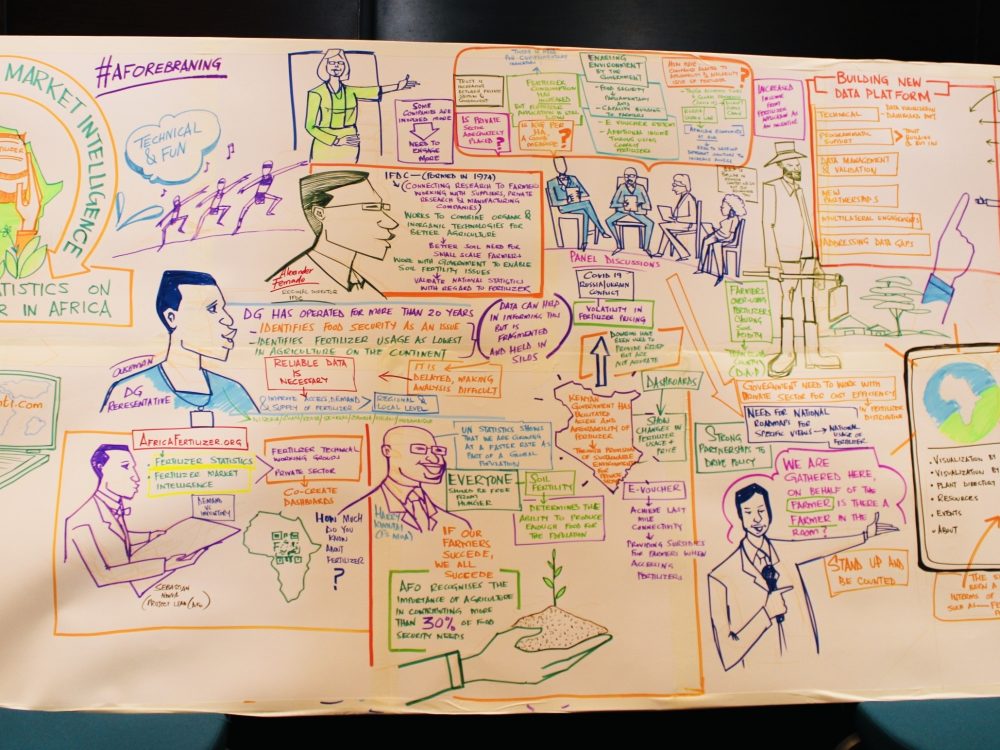Why NGOs Need Investment Data In Their Fight Against Hunger
This blog was originally published on InterAction’s website as part of the Initiative for Open Ag Funding.
For NGOs, good data can mean the difference between successful programs and unsuccessful programs – or significant and negligible results in the fight against hunger and poverty. However, NGOs can find themselves in the dark when deciding where and how to spend their resources, as the information they need to make smarter investments is often difficult, time consuming, and expensive to find. Below are a few of the things NGOs need to know in order to make the best possible investments to end hunger and reduce poverty.
What Others are Doing in the Agriculture and Food Security Sector
While this can seem simple, without knowing what others are doing, it is difficult for NGOs to determine how and where they can have greatest impact, and whether or not their programs will complement existing efforts. One agriculture practitioner explained:
“Unless you sit down and talk with someone who knows that program intimately… you’re really operating with a bit of a fuzzy picture…there is still always sort of like a bit of uncertainty, like ‘do I really understand this program?… Can we really operate with them? Can we really leverage each other’s assistance?”
Without this information, it is also is also difficult to identify what gaps need to be filled to ensure that those in the most need receive the proper assistance.
Where Programs are Being Implemented
Having detailed information on where programs are being implemented helps NGOs ensure that they are not duplicating existing efforts or inadvertently undermining the programs of others. One agriculture practitioner gave this example:
“If other donors are funding activities in … cocoa in country X, and they’re giving away free trees let’s say, and we’re building small-scale enterprises … that are tree nurseries… we need to have that information, and we need to know where they are giving away these trees, and obviously we would have to avoid those areas.”
Who’s Involved
NGOs need to know which organizations are involved in other projects, including funders, implementers, and local partners. This information is key to finding good partners and the best places to seek funding.
Results
NGOs want to learn from the work of others. Without data on the results of other programs, NGOs can struggle to replicate or build on what works and avoid approaches that have been less successful. Unfortunately, this type of information can be the most difficult to obtain.
If these data needs were met with accurate and timely investment data, NGOs could significantly increase the efficiency and effectiveness of their investments to reduce hunger and poverty. And while improving the quality and accessibility of this information is not easy, it is entirely achievable. Learn more about NGOs’ investment data needs in the full report.
Image credit: Yasir Arafat
Share This Post
Related from our library

Building a Sustainable Cashew Sector in West Africa Through Data and Collaboration
Cashew-IN project came to an end in August 2024 after four years of working with government agencies, producers, traders, processors, and development partners in the five implementing countries to co-create an online tool aimed to inform, support, promote, and strengthen Africa’s cashew industry. This blog outlines some of the key project highlights, including some of the challenges we faced, lessons learned, success stories, and identified opportunities for a more competitive cashew sector in West Africa.

Digital Transformation for Public Value: Development Gateway’s Insights from Agriculture & Open Contracting
In today’s fast-evolving world, governments and public organizations are under more pressure than ever before to deliver efficient, transparent services that align with public expectations. In this blog, we delve into the key concepts behind digital transformation and how it can enhance public value by promoting transparency, informing policy, and supporting evidence-based decision-making.

From Data Gaps to Impact: Key Insights from the VIFAA Program
Over the last six years, DG, together with its partners AfricaFertilizer (AFO) and Wallace & Associates, collaborated to implement the Visualizing Insights on Fertilizer for African Agriculture (VIFAA) Program. In the program’s final year (2024), the team undertook a “program learning process” to reflect on outcomes, challenges, and successes through internal interviews. This blog captures five key learnings, which we hope will guide similar programs aiming to bridge data gaps in agricultural development.